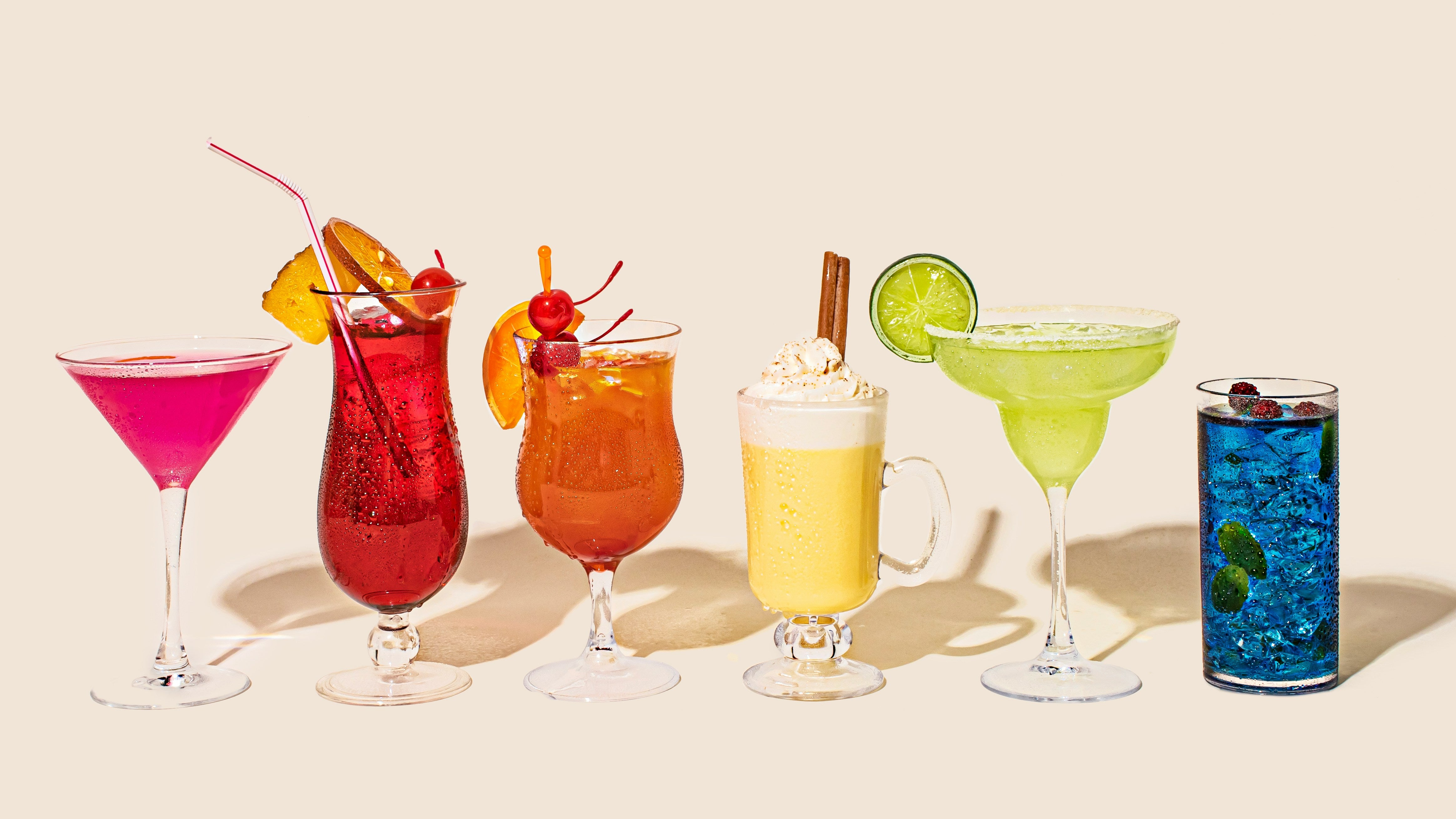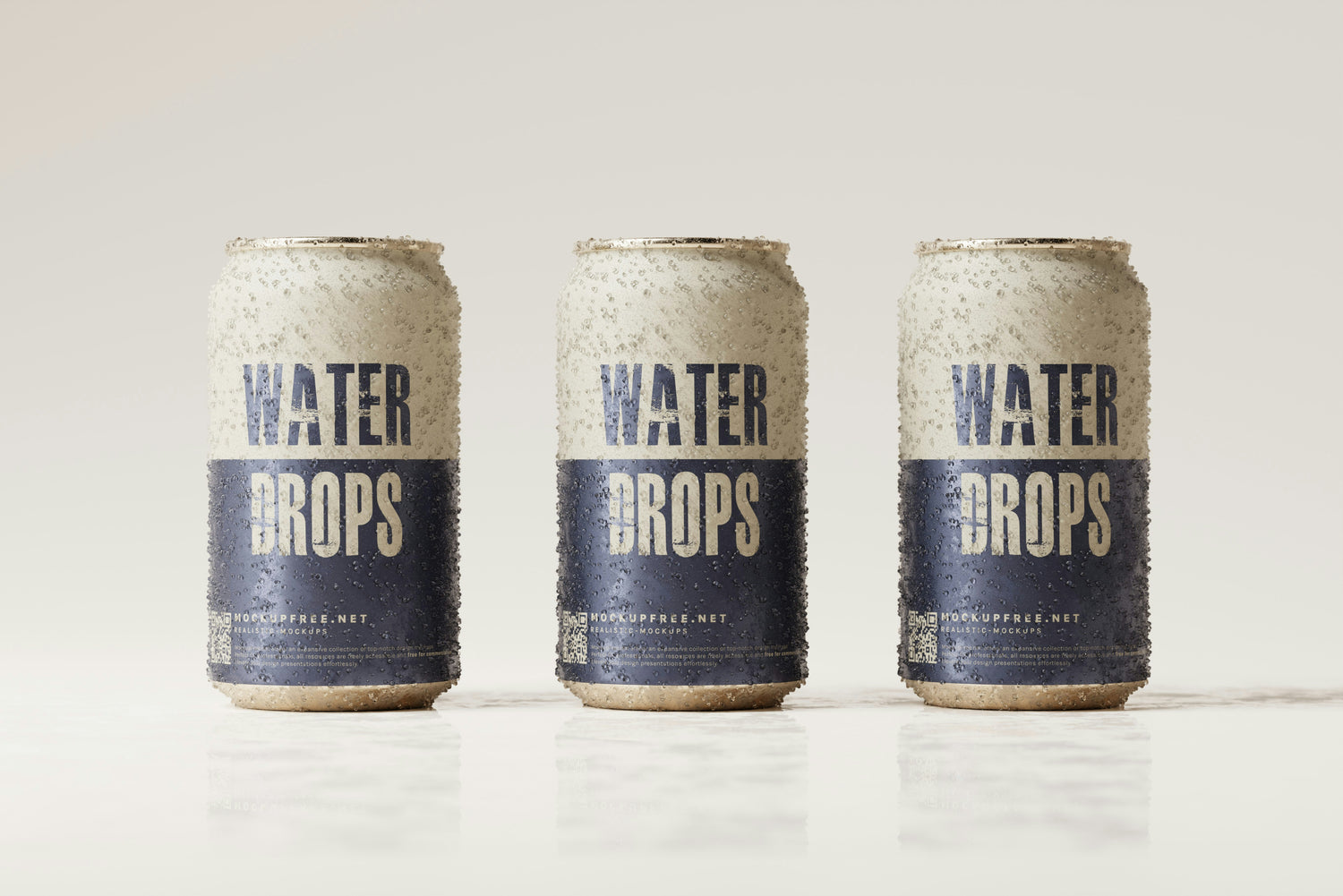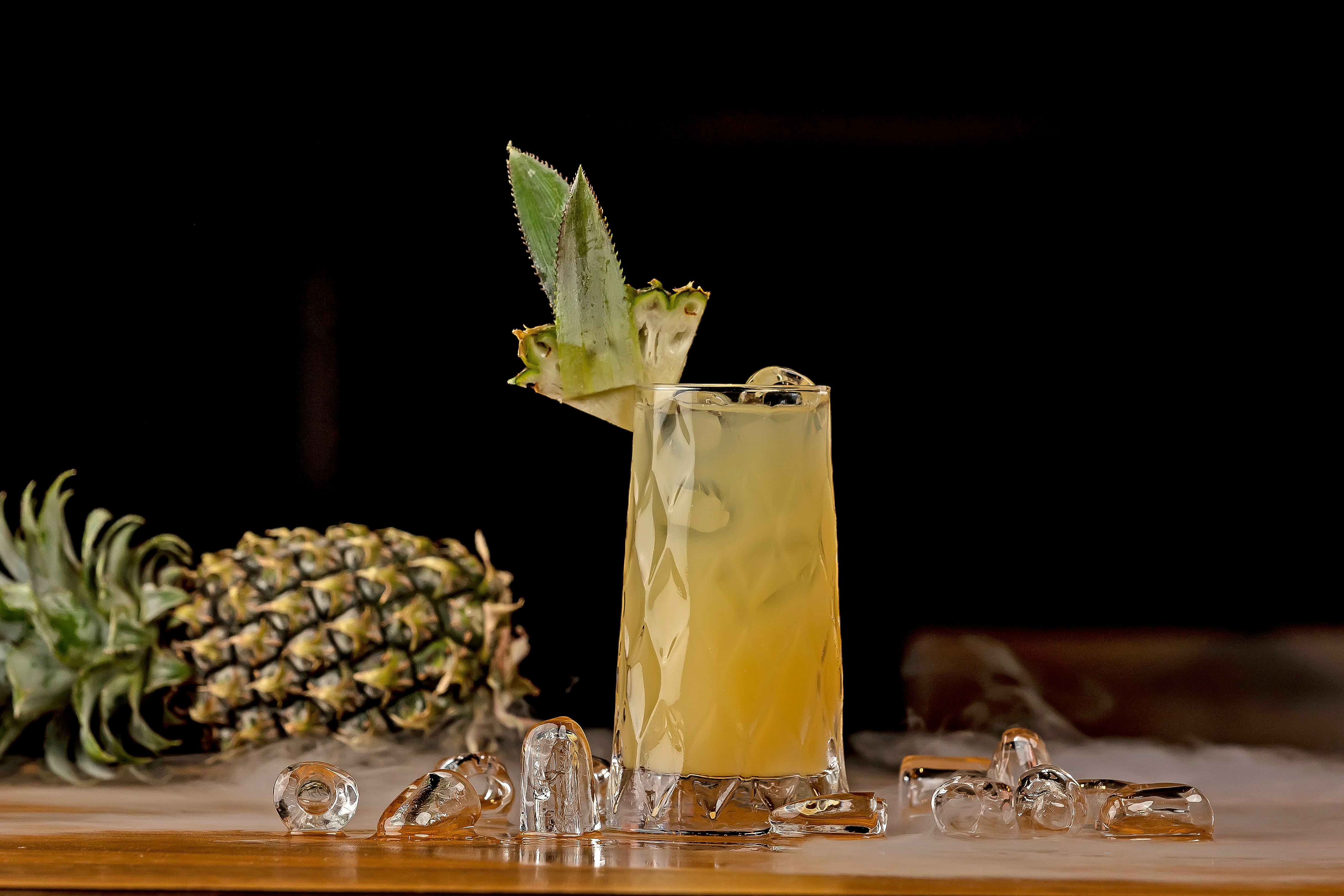Jump to Section
Table of Contents
- What Is Alcohol Intolerance?
- Symptoms of Alcohol Intolerance
- Common Triggers and Ingredients in Alcohol
- Alcohol Intolerance vs. Alcohol Allergy
- Diagnosis and Testing for Alcohol Intolerance
- Managing Alcohol Intolerance
- Living with Alcohol Intolerance
- Emerging Research and Future Treatments
- Expert Insights
- Conclusion
- FAQs
Alcohol Intolerance
Written by:
 Riya Lakhani-Kanji, MSc, ANutr. Last Reviewed 1st January 2025.
Riya Lakhani-Kanji, MSc, ANutr. Last Reviewed 1st January 2025.
Have you ever been out with friends, enjoying a glass of wine, only to suddenly feel flushed or nauseous? What was meant to be a laid-back evening can quickly turn into an uncomfortable ordeal. If this sounds familiar, you might be dealing with alcohol intolerance.
Unlike an alcohol allergy, which triggers a reaction from your immune system, alcohol intolerance means your body struggles to break down alcohol. This is mainly due to a lack of a specific enzyme called ALDH2. Because of this, even a small amount of alcohol can lead to those unpleasant symptoms. This can make social situations tough, as you might feel pressured to drink even if it doesn't sit well with you.

It can be quite frustrating not to participate in cherished traditions, like raising a glass during a toast at a celebration. However, gaining a deeper understanding of alcohol intolerance can empower you to manage it effectively, so you can still enjoy social gatherings without discomfort.
This guide is here to help clear up the confusion about alcohol intolerance. You’ll learn about the symptoms, causes, and ways to manage it effectively. Whether you’re looking for answers or practical tips to make socialising a little easier, this guide will help you navigate alcohol sensitivity with confidence and ease.
What Is Alcohol Intolerance?
When you take a sip of your favourite Chardonnay or enjoy a glass of whiskey, your body embarks on a complex metabolic journey to process that alcohol. However, when this journey hits a roadblock, you may find yourself dealing with alcohol intolerance—a condition that prevents your body from breaking down alcohol effectively.
At the heart of this process is an enzyme called ALDH1, which plays a crucial role in breaking down acetaldehyde, a byproduct produced when you consume alcohol (ethanol). As you drink, your body’s genes, specifically ADH1B and ADH1C, start the breakdown process by turning that alcohol into acetaldehyde.
Now, sometimes, due to genetic variations, those genes can kick into high gear, making acetaldehyde build up in your system faster than usual. When acetaldehyde levels rise too high, it can trigger uncomfortable symptoms. You may experience facial flushing (where your face turns red), a racing heart, and a sensation of heat that resembles hot flashes.
There’s also another genetic variant called ALDH2*2, which doesn’t work very well, leading to high acetaldehyde levels. Research has shown that problems with ALDH2 are closely linked to genetics, meaning that if you experience these issues, there’s a good chance your family members may also be at risk.
It's important to note that not everyone with these gene mutations will have the same symptoms—some may have severe reactions after drinking, while others might only notice mild effects. Essentially, it all comes down to how these mutations impact alcohol metabolism and how each person’s body responds to increased acetaldehyde levels.
Interestingly, many East Asians have a genetic mutation that makes them produce lower levels of the ALDH1 enzyme. This means they have a harder time breaking down acetaldehyde, which just leads to even more of it hanging around in their bodies and intensifying those toxic effects. It’s estimated that between 30%-50% of people of East Asian descent experience this issue. Worldwide, roughly 540 million people with roots in China, Japan, Korea, or Taiwan deal with it, including tens of thousands in the UK alone.
In addition to these genetic factors, recent discussions have emerged about a potential link between long COVID and alcohol intolerance. Some people who are recovering from COVID-19 have noticed that their alcohol intolerance symptoms have either cropped up for the first time or have gotten worse. This might have something to do with how long COVID impacts the body’s metabolism and energy levels, especially considering conditions like post-viral fatigue syndrome. As researchers explore this relationship further, we may gain valuable insights into how the lingering effects of COVID-19 impact our bodies' ability to process alcohol.
It's important to note that alcohol intolerance is not an immune response and should not be confused with an allergy. Rather, it concerns how your body processes alcohol.

Symptoms of Alcohol Intolerance
If you have alcohol intolerance, you might notice a variety of physical reactions in your body, some of which can feel a lot like hangover symptoms. It’s really important to pay attention to these signs, as they can range from just a minor annoyance to something far more serious.
- Flushing and Redness: Have you ever noticed your face or neck turning red after a drink? That’s one of the most common signs of alcohol intolerance. It happens because your body builds up acetaldehyde, a toxic byproduct created when your body breaks down alcohol.
- Nausea and Vomiting: If you often feel queasy or even end up vomiting after a night out, it could mean your body is having a tough time with those elevated acetaldehyde levels.
- Heart Palpitations: Feeling your heart race or flutter after a few drinks? This unsettling feeling might be due to increased blood flow as your body attempts to process alcohol more quickly.
- Headaches and Migraines: If you’ve experienced headaches or migraines shortly after drinking, you’re not alone. Alcohol can widen blood vessels, and when combined with acetaldehyde, it can trigger painful headaches, especially in those who are sensitive to it.
- Skin Reactions: Some individuals may experience hives or itchy skin after consuming alcohol. This might be related to histamine release or an allergy to certain ingredients in the beverage.
- Fatigue or Drowsiness: Feeling unusually tired or sleepy after drinking alcohol may also indicate intolerance. This can be due to the body's struggle to metabolise and eliminate alcohol effectively.
- Nasal Congestion or Runny Nose: Sound familiar? Some alcoholic drinks are high in histamines, which can lead to symptoms that mimic allergies. You might find yourself sneezing or feeling stuffy after a few drinks.
- Mood Changes: Some may notice that their mood fluctuates significantly after drinking, experiencing anxiety or irritability. This can be linked to the impact of alcohol on neurotransmitters and hormonal levels.
- Digestive Issues: Bloating, diarrhoea, or just an upset stomach? This can happen when your body struggles to break down alcohol due to insufficient enzyme activity, leading to discomfort.
It’s important to note that alcohol intolerance can trigger both immediate and delayed reactions, making it a bit tricky to identify. Some individuals may experience symptoms right after consuming alcohol, while others might not notice anything unusual for 20 to 30 minutes or even longer. This delayed response can be particularly confusing, as the symptoms might seem unrelated to the drink itself at first.
On top of that, how intense these symptoms are can vary quite a bit from person to person. A few factors play into this, including genetics, the type of alcohol consumed, and how each individual metabolises alcohol. So, while one person might only feel a bit off after a drink, someone else could have a serious reaction, even after just a small amount. By being aware of these differences, you can better recognise how your body reacts and make more informed choices about drinking.

Common Triggers and Ingredients in Alcohol
Let’s explore some common triggers and ingredients in alcoholic drinks that might lead to unexpected reactions. Knowing what’s in your drink can help you pinpoint any potential culprits, especially if you’re someone who has sensitivities or allergies to certain substances. Here are a few key triggers that often come up when people experience uncomfortable symptoms related to alcohol intolerance:
Histamines
Histamines are chemicals that your immune system produces, and they're found in almost every tissue in your body. They play several important roles, like sending messages to your brain, helping release stomach acid for digestion, and assisting your body in dealing with things that might be bothering you, such as allergies or injuries. Your body makes histamines on its own, but you can also get them from certain foods and drinks that are high in histamines. Some common examples include cheese, wine, meats, fish, and fermented foods like sauerkraut. In fact, a lot of alcoholic beverages, including wine, contain histamines too.
However, some people can run into trouble with histamines if they become what’s called ‘histamine intolerant.’ This isn’t just a sensitivity; it means that your body has accumulated too much histamine. If someone is histamine intolerant, they might experience symptoms similar to an allergic reaction, like sneezing, hives, headaches, nausea, skin flushing, and digestive problems. To better manage these reactions, it is important to know which alcoholic beverages tend to have higher or lower levels of histamines.
Certain alcoholic beverages are known to have higher histamine levels. Red wine, for instance, is often considered one of the most notorious for high histamine content. In fact, red wine generally has between 20–200% more histamine than white wine. This is because red wines are made from fermented grapes, which naturally produce histamines during fermentation. Varieties such as Cabernet Sauvignon, Merlot, and Shiraz are known to contain particularly elevated levels of histamines.
Beer is another beverage that can pose problems, especially unfiltered or craft beers, which often contain more histamines due to their fermentation process. Dark beers, such as stouts and porters, generally have higher histamine levels compared to lighter options like lagers. Additionally, aged spirits, such as whiskey and rum, may accumulate histamines over time as they are aged in wooden barrels, allowing for the development of various compounds during this process.
|
Alcoholic Drink |
Histamine Content (mg/L) |
|
Red Wine |
60 - 130 |
|
White Wine |
3 - 120 |
|
Beer |
21 - 305 |
|
Champagne |
15 - 670 |
|
Vodka |
< 0.1 - 0.5 |
|
Whiskey |
100 - 200 |
Sulfites
Sulfites are commonly used as preservatives in wines and beers, and they play a vital role in keeping these beverages fresh and flavorful while preventing spoilage. However, if you're one of the people who are sensitive to sulfites, you might experience some discomfort. This can show up as respiratory problems, like wheezing or shortness of breath, as well as digestive issues after consuming alcohol. In fact, around 1 in 10 asthmatics are sensitive to sulfites and may have a wheezy reaction to alcoholic drinks. So, if you notice these symptoms after drinking, sulfites could be the culprit.
It's important to understand that not everyone is affected by sulfites, but for those with sulfur or sulfite sensitivity, reactions can be more pronounced. The good news is there are plenty of alternatives for those looking to steer clear of sulfites. If you're looking for a more comfortable drinking experience, consider choosing wines labelled as "sulfite-free." While these options might not completely eliminate your symptoms, they can significantly reduce the chance of severe reactions. You'll also find that some beers have lower sulfite levels, giving you even more choices.
Congeners
Congeners are the byproducts of fermentation that end up in alcoholic beverages, and they are most commonly found in darker spirits like whiskey, rum, and brandy. While fermentation is a natural part of how we produce alcohol, congeners can play a significant role in how we feel after a night of drinking.
Congeners are integral to the flavour and character of these darker spirits, adding to the complex aromas and tastes that each drink offers. They contribute to the unique profiles we enjoy, but there’s a catch—studies suggest that congeners can amplify the symptoms of alcohol intolerance, making hangovers more severe. This means you might experience more intense headaches, nausea, and a general feeling of malaise the following day.
So, how does this impact your drinking choices? If you've ever noticed that you feel particularly rough after enjoying whiskey or rum compared to lighter options like vodka or gin, the higher congener content in those darker spirits may be to blame. In general, lighter alcoholic beverages tend to contain fewer congeners, which may lead to a milder hangover experience.
If you're looking to savour a drink without the consequences the next day, consider reaching for those lighter options more often. For instance, vodka is usually lower in congeners and could be a smart choice if you're concerned about how you'll feel afterward.
Grain-Based Ingredients
Grain-based ingredients are essential in the brewing of beer and the distillation of spirits. Barley, wheat, and rye are the primary grains used, each contributing its unique flavour and character to the beverage. However, for those with gluten sensitivities or celiac disease, these grains can lead to some rather uncomfortable side effects.

Gluten, a protein found in these grains, can disrupt the digestive systems of those sensitive to it. Symptoms may range from mild bloating and gas to more severe digestive distress. If you've ever experienced the unpleasant aftermath of consuming a gluten-rich beer or spirit, you're certainly not alone. This is a common issue for many, and recognising it is the first step toward enjoying beverages without unwelcome repercussions.
So, what options are available for those with gluten intolerance? Thankfully, the beverage industry has taken note of this growing concern and has begun to innovate. We now have an array of gluten-free beers and spirits, made from naturally gluten-free grains like sorghum, rice, and millet. These alternatives have come a long way, boasting improved flavours and a wider variety, allowing individuals with gluten sensitivities to enjoy a refreshing drink without worrying about bloating or digestive discomfort.
Additives and Flavourings
When we think about our favourite drinks, it’s easy to focus on how they taste, but it’s worth considering what goes into them. Additives and flavourings in alcoholic beverages can sometimes be a sneaky source of discomfort for certain people.
Sweeteners such as aspartame, sorbitol, and high-fructose corn syrup are often found in flavoured liquors and cocktails. While they can make drinks taste sweeter, they might also cause gastrointestinal issues, headaches, or even allergic reactions for those who are sensitive.

Then there are the colourings—those vibrant hues that make drinks look so appealing. Ingredients like artificial dyes and pigments can cause problems for some people. For instance, Red 40 and Yellow 5 have been associated with side effects like hyperactivity, skin rashes, and nausea.
Don’t forget about preservatives! These are commonly added to wine and some spirits to help them last longer. While most people tolerate them just fine, those with asthma or a sulfite allergy could face breathing difficulties, headaches, or skin reactions.
Natural flavourings can also be a bit tricky. Take citric acid, for example, which you’ll often find in citrus-flavoured drinks; it can trigger acid reflux or digestive distress for some people.
If you've ever dealt with discomfort after a drink, it's a good idea to pay attention to these ingredients. Checking labels and opting for products made with natural ingredients can really help reduce the risk of any unpleasant surprises.
Alcohol Intolerance vs. Alcohol Allergy
Understanding the difference between alcohol intolerance and an alcohol allergy is really important for figuring out how to manage each condition. While both can make enjoying certain drinks a challenge, they stem from different causes and come with different symptoms.
First, let’s talk about alcohol allergies, which are actually quite rare. When someone has an alcohol allergy, it means that their immune system mistakenly identifies alcohol or specific ingredients in alcoholic beverages as harmful. Interestingly, it’s often more common for people to be allergic to certain ingredients—like wheat, yeast or barley in beer—rather than the alcohol itself. Some individuals may also experience reactions to grapes or corn that are used in the production of wine and distilled spirits. So, if you notice any unusual symptoms after drinking, it might be helpful to consider what else is in your drink beyond the alcohol.
Common reactions may include skin issues like hives and swelling (also known as angioedema), which can be uncomfortable and distressing. But in more serious cases, things can escalate quickly. Symptoms may include difficulty breathing, tightness in the throat, a racing heart, and even stomach issues. The worst-case scenario could be anaphylaxis, which is really serious and can cause your throat to swell up, making it hard to breathe, and it can lead to a dangerous drop in blood pressure. If you ever find yourself experiencing these symptoms, getting medical help right away is really important.
Now, let's talk about alcohol intolerance. Unlike allergies, this isn’t about the immune system at all—it’s really about how your body processes alcohol. Many people with alcohol intolerance have a deficiency in an enzyme called aldehyde dehydrogenase 2 (ALDH2). So when someone with this deficiency drinks alcohol, a toxic substance called acetaldehyde builds up in their body instead of breaking down properly. This can lead to some pretty uncomfortable reactions, like flushing (you’ll most likely notice a red face), nausea, headaches, and even digestive issues like stomach pain or diarrhoea.
While the symptoms of alcohol intolerance can be pretty distressing, they’re usually not life-threatening. It might make you rethink that next drink, though. For those dealing with alcohol intolerance, moderation is essential. Knowing your limits and recognising your symptoms can really help you avoid discomfort.
|
Aspect |
Alcohol Allergy |
Alcohol Intolerance |
|
Nature of Condition |
Immune system reaction |
Metabolic condition |
|
Primary Cause |
Reaction to an allergen in alcoholic drink (e.g., barley, wheat, grapes) |
An enzyme deficiency (ALDH2) or a reaction to ingredients found in alcoholic drink (e.g., grains, histamine, sulfites) |
|
Common Symptoms |
Hives, swelling, difficulty breathing, anaphylaxis |
Flushing, nausea, headaches |
|
Skin Reactions |
Itchy rash, hives, swelling |
Redness, flushing |
|
Respiratory Issues |
Difficulty breathing, wheezing |
Nasal congestion, runny nose |
|
Severity |
Potentially life-threatening |
Uncomfortable, but generally non-life-threatening |
|
Onset of Symptoms |
Almost immediate, upon exposure to allergens |
Shortly after alcohol consumption |

Diagnosis and Testing for Alcohol Intolerance
If you suspect that alcohol might not be agreeing with you, understanding how to diagnose and test for alcohol intolerance can be a valuable step. Whether through self-observation or professional assessments, figuring out what's causing your reactions is crucial for managing your health. Here are some approaches you can consider:
Self-Observation
A great first step to understanding how alcohol affects you is to start a detailed symptom journal. It might sound a bit tedious, but it can be incredibly insightful! Whenever you have a drink, take a moment to jot down what you consumed and any reactions you experienced afterward. Include everything from your favourite craft beer to that fancy cocktail you tried at the bar.
As you track your experiences, pay particular attention to specific symptoms. Do you notice any flushing in your face, persistent headaches, or digestive discomfort? Maybe you sometimes feel a bit lightheaded or experience a quick heartbeat. Writing these details helps you pinpoint not just the beverages you enjoy, but also the ones that might be causing trouble.
Over time, you’ll start to see patterns emerging. For instance, you might discover that certain types of wine consistently lead to headaches, while a specific brand of beer leaves you feeling fine. This clarity can be really helpful when you're out with friends or choosing a drink at home.
Elimination Method
Another effective strategy to figure out how alcohol might be affecting you is the elimination method. It might sound a bit extreme at first, but it's actually a straightforward way to get to the bottom of your discomfort. Here’s how it works: you start by cutting out all alcoholic beverages from your diet for a specific period—typically, two to four weeks. This gives your body a chance to reset and clear out any remaining effects from alcohol.
During this time, it’s helpful to pay close attention to how you feel. Do you notice any changes in your energy levels, mood, or overall well-being? Many people are pleasantly surprised to discover an increase in clarity or a decrease in headaches and digestive issues when they stop consuming alcohol. It's a great opportunity to reconnect with how your body feels in a sober state.
Once you've completed the elimination phase, it’s time for the reintroduction part of the process. Gradually add different types of alcoholic beverages back into your routine—one at a time—and wait a few days in between each to see how you react. You might try wine one week, a specific beer the next, and maybe a cocktail after that. Make sure to keep notes!
Pay close attention to any symptoms that arise after each type of drink. You might find that certain beverages trigger discomfort while others don’t bother you at all. This insight can be incredibly valuable, helping you understand which drinks to enjoy in moderation and which ones to avoid altogether.
Professional Testing
If you're trying to figure out why alcohol isn’t sitting right with you, seeking advice from a healthcare provider can really help. They can offer insights and recommendations tailored to your specific needs. Here are a few options they might suggest:
Genetic Testing
One of the more fascinating areas of testing involves your genetics, particularly the ALDH2 gene. If you have a deficiency in ALDH2, your body struggles to break down acetaldehyde, a byproduct of alcohol metabolism, leading to unpleasant symptoms like flushing, nausea, or rapid heartbeat. A simple genetic test can let you know if this is at play, giving you a clearer picture of how alcohol affects you.
Food Intolerance Tests
These tests can be extremely helpful in identifying sensitivities to common ingredients found in alcoholic beverages. For instance, some people may react poorly to certain grains like barley or wheat, which are used in many beers and spirits. Others might have issues with the sulfites or histamines, as mentioned earlier. A food intolerance test can shed light on what might be causing those discomforting symptoms.
Here at Supply Life, we offer a comprehensive food intolerance test designed to help you pinpoint specific sensitivities that may be impacting your health and comfort. Our easy-to-use testing kits allow you to collect samples from the comfort of your home and send them to our state-of-the-art laboratory for analysis. We test for common ingredients found in alcoholic drinks, such as grains, yeast and certain fruits.

Unlock your full potential today
Get your easy to use food intolerance test today
Take the first step toward better health, and discover what might be holding you back. Your next great evening could be just a test away!
Managing Alcohol Intolerance
If you’ve identified that you have alcohol intolerance or are simply sensitive to certain beverages, the good news is that there are effective ways to manage your experience. With a few thoughtful choices, you can enjoy social gatherings without sacrificing your well-being.
Avoiding High-Risk Drinks
Certain types of alcohol are more likely to provoke intolerances. For instance, red wine and dark spirits often contain high levels of histamines and congeners, which can trigger adverse reactions. Similarly, beer and cider can pose problems due to their high sulfite content and grain derivatives. By steering clear of these beverages, you can reduce the risk of uncomfortable symptoms.
Choosing Alternatives
If you’re seeking options that are less likely to cause unwanted reactions, consider adding alcohol-free selections to your drink choices. Non-alcoholic beverages—like mocktails, alcohol-free beers, and wines—offer a similar social experience without the risk of negative effects. Mocktails, crafted from fresh juices and aromatic herbs, can be just as enjoyable as their alcoholic counterparts.

You might also want to explore clear spirits, like vodka or gin. These options usually contain fewer congeners than darker liquors, which means they tend to be easier on your system. Pairing these spirits with non-reactive mixers—like tonic water, soda, or fresh citrus juices—can create refreshing beverages with minimal effects on your system. This approach allows you to enjoy the social aspects of drinking, while reducing the risk of unwanted reactions.
You can also consider low-sulfite or organic wines, which are often better tolerated by those sensitive to sulfites, common preservatives found in many wines. These options tend to have a more natural flavour profile and are produced with fewer additives, making them a great choice for those who want to enjoy wine without the potential discomfort that can accompany conventional varieties.
It’s all about discovering what suits you best while enjoying yourself. So, the next time you’re out with friends or hosting a cosy night in, remember these alcohol-free options—they might just transform a potential headache into a delightful evening.
Drink Slowly and in Moderation
When dealing with alcohol intolerance, one simple rule to remember is that less really is more. The less alcohol you consume, the easier it will be on your body. Since alcohol intolerance happens because your body struggles to process alcohol, sipping slowly and spacing out your drinks can help ease those uncomfortable symptoms.
Moreover, it’s a good idea to establish a baseline for how your body typically reacts to different types of alcohol. Starting with lighter drinks or lower-alcohol options can help you gauge your tolerance and find a comfortable rhythm.
Stay Hydrated
One great tip for handling alcohol is to stay hydrated. A simple trick is to alternate your alcoholic drinks with water. This not only keeps you from getting dehydrated but also helps your body manage the alcohol better. Plus, it gives you a little more time to enjoy that social atmosphere without feeling overwhelmed! So, for every drink you have, try to sip on a glass of water too.
Eat Before Drinking
One really effective way to manage alcohol intolerance is to make sure you eat a proper meal before you start drinking. When you’ve got food in your stomach, it helps slow down how quickly alcohol is absorbed into your bloodstream. This gives your body a chance to metabolise the alcohol more gradually, which can reduce the buildup of acetaldehyde—the culprit behind many of those uncomfortable symptoms we all want to avoid.
Going for a hearty meal, especially one packed with complex carbs, proteins, and healthy fats, can really help buffer those symptoms like flushing, nausea, and headaches. So, think about meals that include whole grains, lean meats, or legumes. Not only do they fill you up, but they can also help keep your blood sugar stable, which makes your body’s reaction to alcohol a bit more balanced.
Plus, having a meal before you drink can keep those sudden spikes in alcohol concentration at bay, which often leads to worse intolerance symptoms. By taking this simple step, you’re setting yourself up for a healthier drinking experience overall.
Living with Alcohol Intolerance
Living with alcohol intolerance can present social challenges, especially when it feels like drinking is at the heart of gathering with friends. It’s completely understandable to feel left out or even pressured to join in when you’d rather not. But with a little preparation and some good communication skills, you can handle these situations with confidence!
Facing Social Challenges
Being open about your alcohol intolerance can cultivate understanding among your friends and family. Clearly communicating your boundaries is crucial; by explaining that consuming alcohol may lead to unpleasant symptoms, you can encourage a more supportive environment for your choices. This transparency not only helps others understand your situation but also strengthens your relationships.
Handling Peer Pressure
Peer pressure can sneak up on you, whether it’s direct or just the vibe of the room. It’s helpful to have a go-to response ready for those moments, like, “Thanks for the offer, but I feel my best without alcohol.” Sometimes, just having a non-alcoholic drink in hand can deter repeated requests for you to drink—plus, there are so many options out there! Whether it's sparkling water with a twist of lime or a fancy mocktail, you can still join in the fun without compromising your health.

Effective Communication
When you’re planning to attend social events, consider chatting with the host beforehand about your needs. A simple, “I’d love to come, but I need to stick to non-alcoholic options for health reasons,” can set the tone. Most hosts will appreciate the heads-up and likely be more than happy to accommodate your preferences. This way, you’ll feel supported and included right from the get-go.
Alternative Beverages
In a society where drinking often plays a central role in celebrations and gatherings, it's good to have alternatives ready to enjoy yourself without feeling left out. Here are a few suggestions for alternative beverages that can match the festive spirit of any gathering:
- Mocktails: These non-alcoholic cocktails mimic the flavours of real cocktails and can be a delightful substitute.
- Alcohol-Free Beers: Many breweries offer beers that taste remarkably similar to their alcoholic counterparts.
- Sparkling Water: With a slice of lemon or lime, it can be a refreshing substitute for plain water.
- Non-Alcoholic Wine: Ideal for those who enjoy the ritual of a glass of wine without the side effects.
Emerging Research and Future Treatments
When it comes to alcohol intolerance, there's some exciting research on the horizon that could change the game for many people. One area that’s gaining traction is enzyme replacement therapy. Essentially, this involves supplementing the body with the enzymes, also known as ALDH2 activators, that people with alcohol intolerance might lack. By improving alcohol metabolism, this therapy could help reduce the unpleasant symptoms associated with drinking, making social situations easier to handle.
On top of that, advancements in personalised medicine are revolutionising how we approach individual sensitivities. Genetic testing is becoming more accessible to the public, allowing people to learn about their specific genetic makeup, including whether they have ALDH2 deficiency. This kind of knowledge is invaluable because it empowers individuals to make informed decisions about their drinking habits. Instead of guessing how their body will react, they can adjust their choices based on their own genetic profiles, which can lead to a more enjoyable and safer social experience.
Moreover, recent studies are shedding light on histamine and sulfite sensitivities, which often complicate the picture of alcohol intolerance. Research highlights how these compounds, commonly found in various alcoholic beverages, can trigger significant reactions in sensitive individuals. As scientists continue to explore these pathways, the possibility of developing interventions or lifestyle modifications to better manage these sensitivities becomes more attainable.
Expert Insights
 "Alcohol affects us all differently, and those lingering symptoms—nausea, headaches, or unexpected skin reactions—might be your body's way of signalling an alcohol intolerance or sensitivity. To truly understand these responses, consider a food intolerance test. This can shed light on how your body interacts with various substances, allowing you to pinpoint your triggers. Armed with this knowledge, you can make informed choices that enhance your overall well-being and elevate your daily health routine." — Riya Lakhani-Kanji BSc, MSc
"Alcohol affects us all differently, and those lingering symptoms—nausea, headaches, or unexpected skin reactions—might be your body's way of signalling an alcohol intolerance or sensitivity. To truly understand these responses, consider a food intolerance test. This can shed light on how your body interacts with various substances, allowing you to pinpoint your triggers. Armed with this knowledge, you can make informed choices that enhance your overall well-being and elevate your daily health routine." — Riya Lakhani-Kanji BSc, MSc
Conclusion
Understanding and managing alcohol intolerance can seem a bit tricky, but with some awareness and proactive steps, it’s absolutely doable. If you tend to experience symptoms like flushing or nausea after drinking, it’s definitely something worth paying attention to. Certain triggers, like sulfites and congeners, might be behind your discomfort too.
To keep symptoms at bay, stick to drinks that are less likely to cause issues for you, and don’t forget the basics—staying hydrated can really help!
If you think you might have alcohol intolerance, getting professional advice is a great next step. A healthcare provider can offer guidance and may suggest further tests to help you pinpoint what’s going on.
As you think about what to do next, have you considered getting a food intolerance test from Supply Life? It might help you discover some sensitivities you didn’t even know you had, which would let you customise your diet even more. We test for common ingredients found in alcoholic drinks, such as grains, yeast and certain fruits. With the right information, you'll feel more equipped to manage your symptoms and make choices that really work for you.

Unlock your full potential today
Get your easy to use food intolerance test today
FAQs
Can alcohol intolerance develop suddenly?
Yes, alcohol intolerance can develop suddenly, although it remains uncommon. Several factors might contribute to the unexpected onset of symptoms. While our genetics don’t change overnight, things like the levels of certain enzymes—like aldehyde dehydrogenase (ALDH2)—can shift due to factors like age, health issues, or even medications. If you find yourself experiencing these new symptoms, it might be helpful to keep a journal of your experiences with alcohol and have a chat with a healthcare professional.
Why do some drinks cause worse symptoms than others?
The symptoms can really vary because there are so many different ingredients and compounds in alcoholic drinks. For instance, histamines that you find in red wine and aged spirits can sometimes give you headaches or make you feel stuffy. On the other hand, sulfites, which are present in beer and wine, might trigger respiratory issues or an upset stomach. And then there are congeners, found in darker spirits like whiskey and rum, that can make things even worse. It's important to remember that alcohol tolerance is personal; what might affect one person could hardly impact someone else at all!
Can alcohol intolerance be cured?
No, currently there is no cure for alcohol intolerance. This condition is primarily due to a genetic deficiency in the enzyme aldehyde dehydrogenase (ALDH2), which is responsible for breaking down alcohol in the body. The best way to handle it is to steer clear of triggers and manage any symptoms that crop up. There’s some exciting research happening around enzyme replacement therapies and personalised medicine, which could lead to better ways to help with alcohol metabolism in the future.
Is alcohol intolerance linked to other health conditions?
Yes, alcohol intolerance can actually be tied to some health issues. For many people, especially those of East Asian descent, it's often due to a genetic enzyme deficiency that can increase the risk of certain cancers, like esophageal cancer. Plus, if someone has digestive disorders like irritable bowel syndrome (IBS) or celiac disease, they might find that alcohol really doesn't sit well with them, especially because they could be sensitive to things like gluten or histamines in alcoholic drinks. It's definitely worth considering these connections, and talking to a healthcare professional can really help in understanding individual risks and managing symptoms.
What are the safest alcoholic drinks for people with intolerance?
If you have alcohol intolerance, you may want to look for drinks that are less likely to trigger your symptoms. Clear spirits like vodka and gin, especially when mixed with plain water or something gentle, are often easier on the stomach for many people. You could also consider low-sulfite or organic wines since they have fewer preservatives that might make symptoms worse. Just remember to take it slow and try out different options to see what works best for you.
Why have I suddenly become intolerant to alcohol after drinking for years?
It can be surprising to suddenly develop intolerance to alcohol, especially if you've enjoyed it without issues before. The reasons can vary—genetic factors may become more pronounced due to ageing, hormonal changes, or alterations in your health, such as new medical conditions or medications, can all impact how your body reacts to alcohol.

Written by: Riya Lakhani-Kanji, MSc, ANutr
Riya is a certified nutritionist with a passion for plant-based nutrition. Holding both a bachelor's and a master’s degree in nutrition, she skillfully blends her expertise with her writing to create insightful and engaging content focused on health and wellness.
Sources
ADH1C. (2014). https://www.sciencedirect.com/topics/biochemistry-genetics-and-molecular-biology/adh1c
Alcohol allergies and intolerance. (2024). https://www.verywellhealth.com/alcohol-allergies-and-intolerances-1324211
Alcohol Consumption, Aldehyde Dehydrogenase 2 Gene Polymorphisms, and Cardiovascular Health in Korea. Yonsei Med J. (2017). https://eymj.org/DOIx.php?id=10.3349/ymj.2017.58.4.689
Alcohol intolerance and allergies: symptoms & causes. (2024). https://www.thermofisher.com/allergy/gb/en/living-with-allergies/understanding-allergies/alcohol-intolerance.html#:~:text=Unwelcome%20at%20any%20celebration%2C%20symptoms,They%20may%20include%3A&text=Flushing%3A%20A%20red%2C%20warm%20face,runny%20nose%20and%20sinus%20pressure
ALDH2 variance in disease and populations. Disease Model Mechanisms. (2022). https://journals.biologists.com/dmm/article/15/6/dmm049601/275799/ALDH2-variance-in-disease-and-populations
Allergic and asthmatic reactions to alcoholic drinks. Addiction Biology. (2006). https://onlinelibrary.wiley.com/doi/abs/10.1080/1355621031000069828
Are you allergic or intolerant to alcohol? (2022). https://www.bbc.co.uk/food/articles/alcohol_allergy_intolerance
Aspartame intolerance. Ann Allergy. (1988). https://pubmed.ncbi.nlm.nih.gov/3061324/
Coffee doesn’t give you the jitters, alcohol makes you blush: thank your genes. (N.D.). https://www.pfizer.com/news/articles/coffee-doesn%E2%80%99t-give-you-jitters-alcohol-makes-you-blush-thank-your-genes
Design, synthesis, and biological evaluation of new ALDH2 activators. Journal of Saudi Chemical Society. (2019). https://www.sciencedirect.com/science/article/pii/S1319610318300814
Effects of variation at the ALDH2 locus on alcohol metabolism, sensitivity, consumption, and dependence in Europeans. Alcoholism: Clinical and Experimental Research. (2006). https://onlinelibrary.wiley.com/doi/abs/10.1111/j.1530-0277.2006.00128.x
Fructose intolerance: Which foods to avoid? (2024). https://www.mayoclinic.org/fructose-intolerance/expert-answers/faq-20058097
Gluten-free alcohol. (2023). https://www.drinkaware.co.uk/facts/information-about-alcohol/alcoholic-drinks-and-units/units-and-calories-in-alcoholic-drinks/gluten-free-alcohol
Histamine intolerance: symptoms, diagnosis, and beyond. Nutrients. (2024). https://pmc.ncbi.nlm.nih.gov/articles/PMC11054089/#:~:text=A%20team%2Dbased%20approach%20is,and%20provide%20relief%20to%20patients.
Histamines in wine and alcohol. (n.d.). https://drinkwelluk.com/blogs/news/histamines-in-wine-and-alcohol
ME Association Website Survey: Alcohol Intolerance: ME/CFS and Long Covid. (2023). https://meassociation.org.uk/2023/12/me-association-website-survey-alcohol-intolerance-me-cfs-and-long-covid/
New Alcohol Sensitivity in Patients With Post-acute Sequelae of SARS-CoV-2 (PASC): A Case Series. Cureus. (2023). https://www.cureus.com/articles/152512-new-alcohol-sensitivity-in-patients-with-post-acute-sequelae-of-sars-cov-2-pasc-a-case-series#!/
Reactions to alcohol. (2022). https://www.allergyuk.org/resources/reactions-to-alcohol/
Say No to Glow: Reducing the Carcinogenic Effects of ALDH2 Deficiency. (2019). https://collectionsblog.plos.org/say-no-to-glow-reducing-the-carcinogenic-effects-of-aldh2-deficiency
Sorbitol & polyol intolerances. (n.d.). https://foodintolerances.org/en/intolerances/sorbitol-polyols-intolerance
The alcoholic drinks that are most and least likely to give you a hangover. (2023). https://www.stylist.co.uk/food-drink/how-avoid-hangover-headache-vodka-wine-gin-spirits-champagne-congeners/42420
The role of beverage congeners in hangover and other residual effects of alcohol intoxication: a review. Current Drug Abuse Reviews. (2010). https://www.eurekaselect.com/article/39029
Understanding alcohol intolerance – for a happy and a healthy Lunar New Year. (2024). https://alcoholchange.org.uk/blog/understanding-alcohol-intolerance-for-a-happy-and-a-healthy-lunar-new-year
What is Red Dye 40? (2020). https://www.healthline.com/nutrition/red-dye-40
What to know about yellow 5 food dye. (2024). https://www.webmd.com/diet/what-to-know-yellow-5-food-dye
What you need to know about alcohol and allergies. (2024). https://www.texashealth.org/areyouawellbeing/Allergies/What-You-Need-to-Know-About-Alcohol-and-Allergies
Why does my face go red when I’m drinking? Understanding alcohol intolerance. (n.d.). https://alcoholchange.org.uk/alcohol-facts/fact-sheets/why-does-my-face-go-red-when-im-drinking-understanding-alcohol-intolerance




